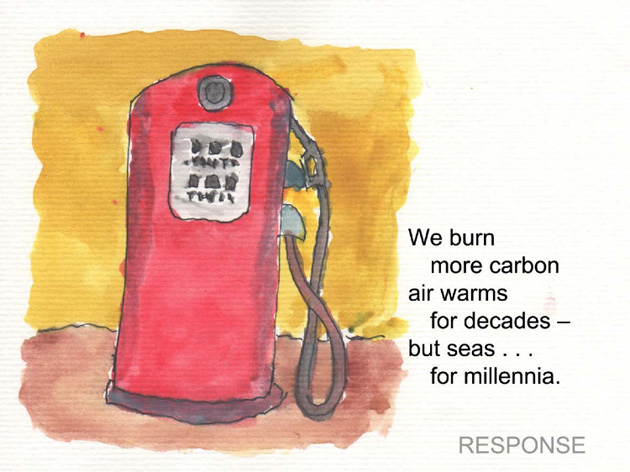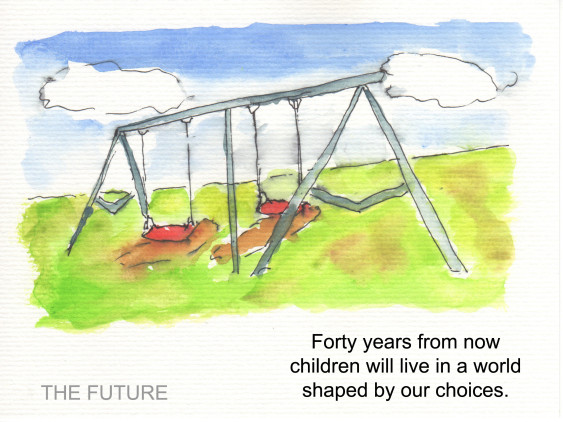
<a href="http://daily.sightline.org/2013/12/16/the-entire-ipcc-report-in-19-illustrated-haiku/">Gregory C. Johnson</a>/Sightline.org
Recently at the annual American Geophysical Union meeting in San Francisco, a number of climate researchers and communications specialists sounded off about the problems involved in conveying climate science information to the public. Naomi Oreskes, the Harvard science historian, noted one of the many challenges: There’s a huge gap between how grave the climate issue actually is, and how clinical and detached climate scientists seem to sound when they discuss it.
“Our tone doesn’t match our words,” Oreskes said. As a result, climate communications often lack emotional authenticity.
But not every scientist fails to communicate effectively (or, seems to emulate Spock when doing so). And now one climate expert, Gregory C. Johnson, has done something truly innovative when it comes to sharing global warming information in an understandable, and even moving, way.
Sightline.org has published 19 illustrated haiku by Johnson (see one example above) that attempt to distill the message of the United Nations’ Intergovernmental Panel on Climate Change’s recent Summary for Policymakers. The “SPM,” as it’s known, is a highly technical and difficult document; Johnson, as a lead author, understands it far better than most mortals. However, he has replaced its wonkery with a series of brief poems, each accompanied by a watercolor illustration.
The haiku are given simple titles that reflect parts of the report: “History, Water,” “Models,” “Change Drivers.” Many of the haiku are, of course, about what will come: “The Future.” Like this one:

You can see the entire set of Johnson’s haiku on the Sightline Institute’s blog. In light of the snafus and misinformation attending the rollout of the IPCC’s Summary for Policymakers in September, as well as the long history of IPCC communications problems, they’re quite a welcome change. To Dr. Johnson, then, we offer a haiku of our own:
Thank you, scientist:
Not for your facts or data
But for what they mean.













